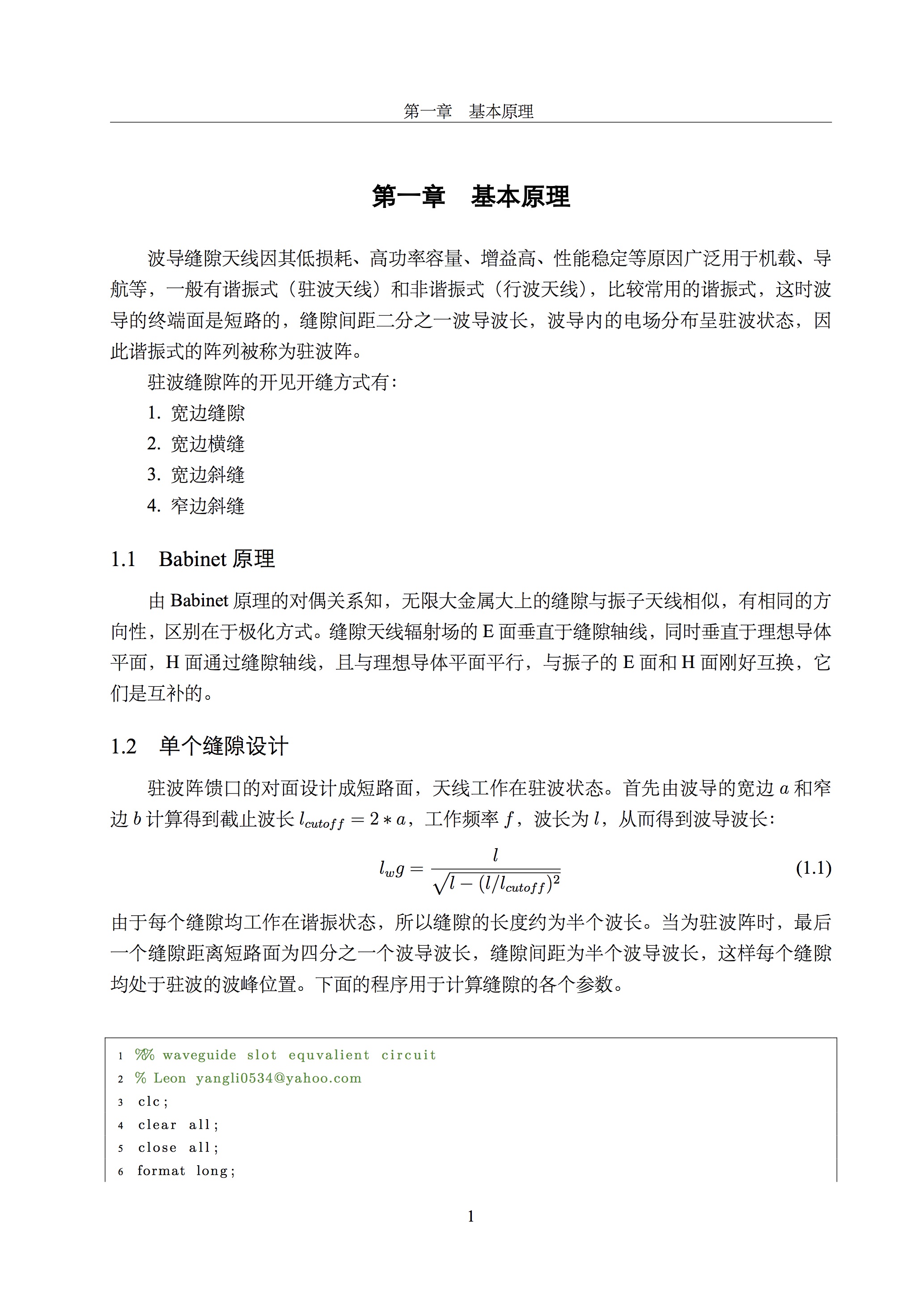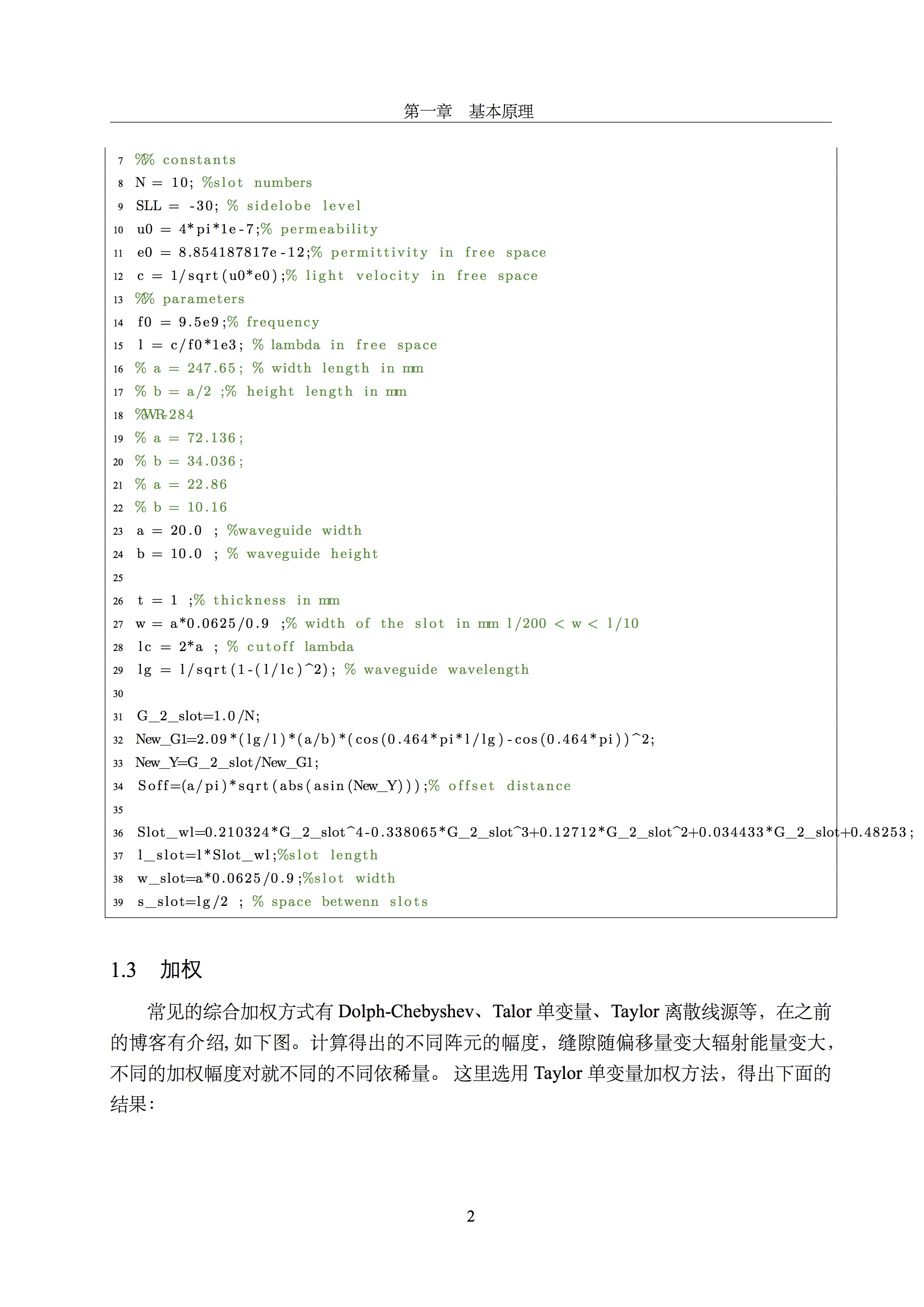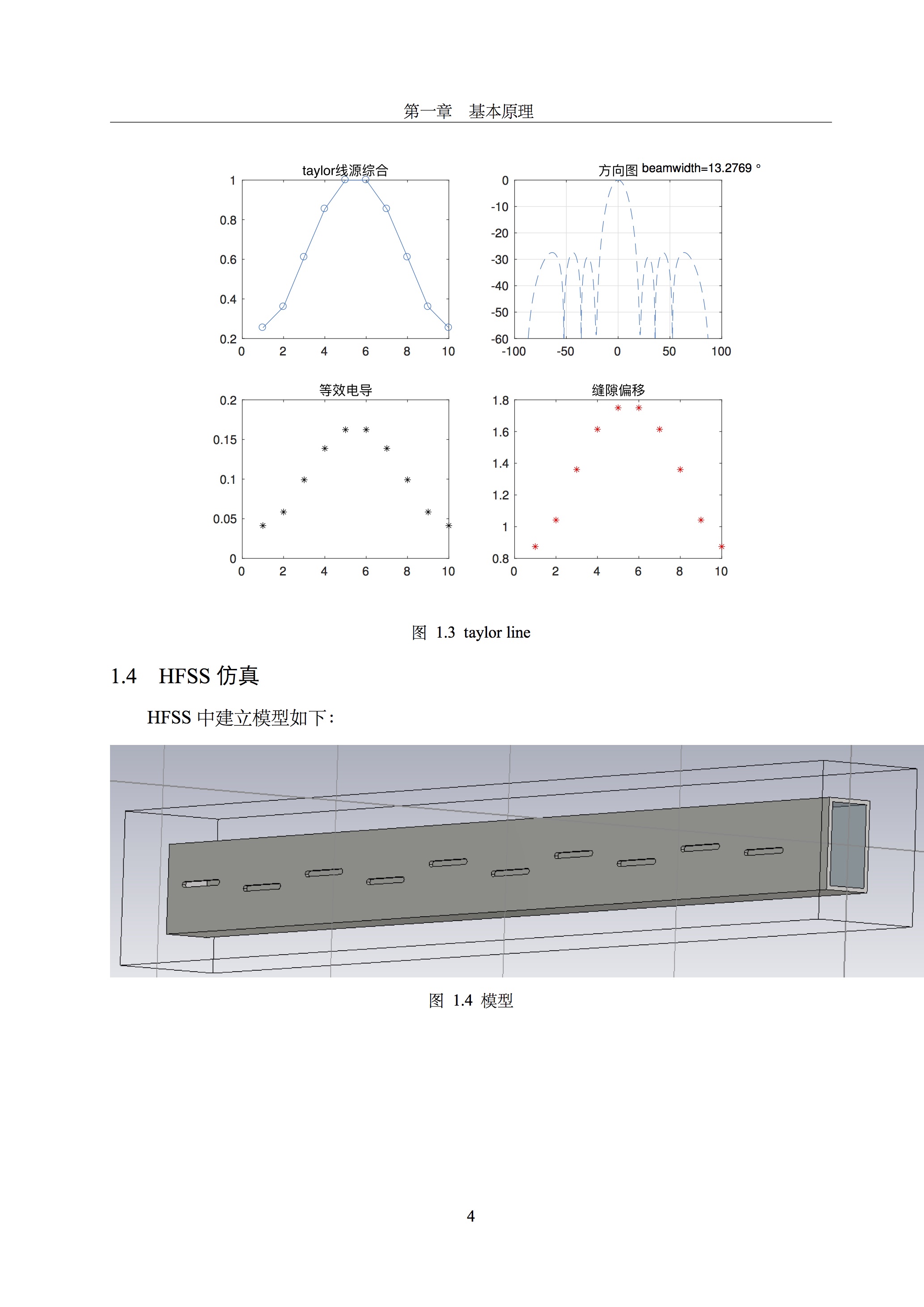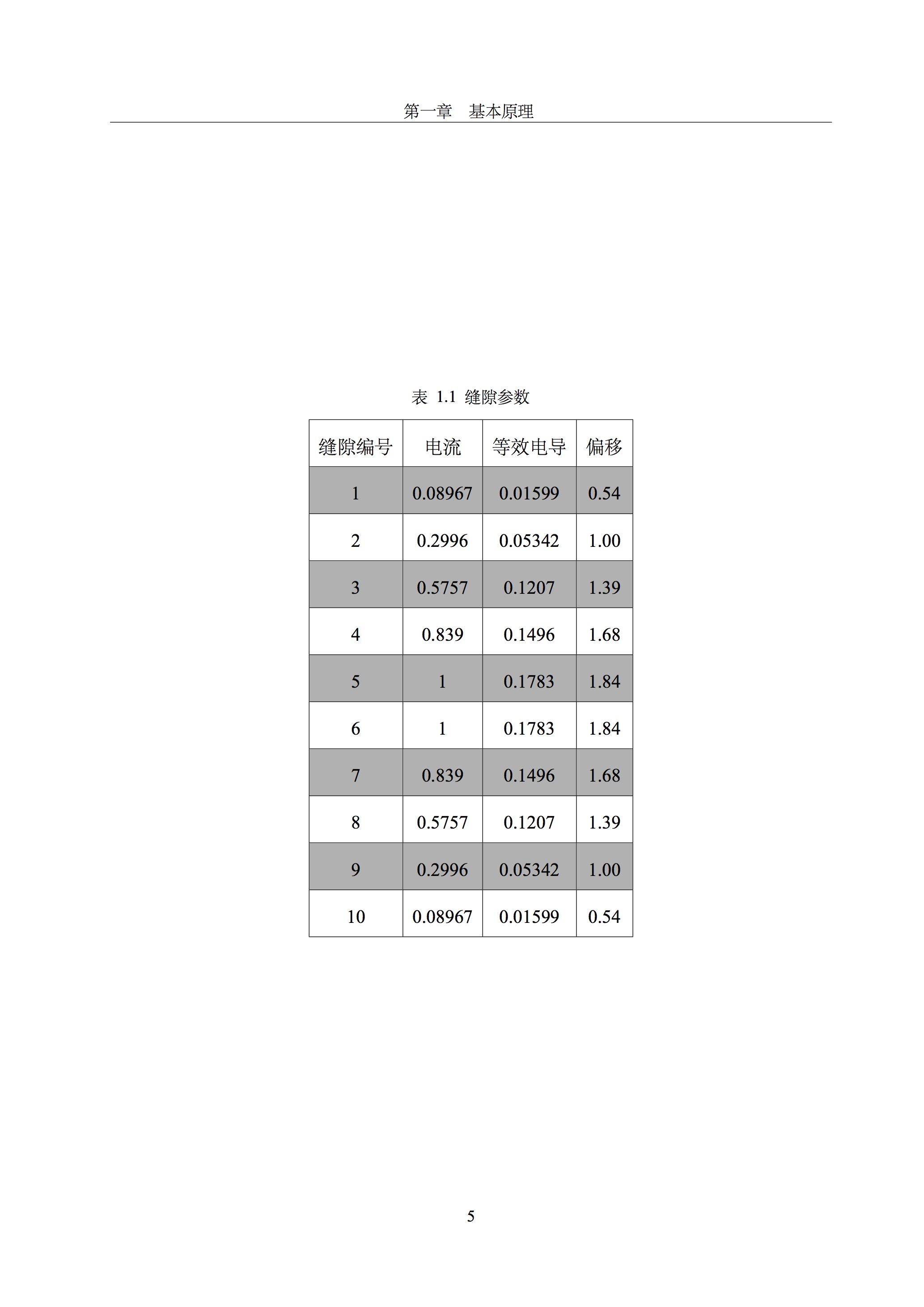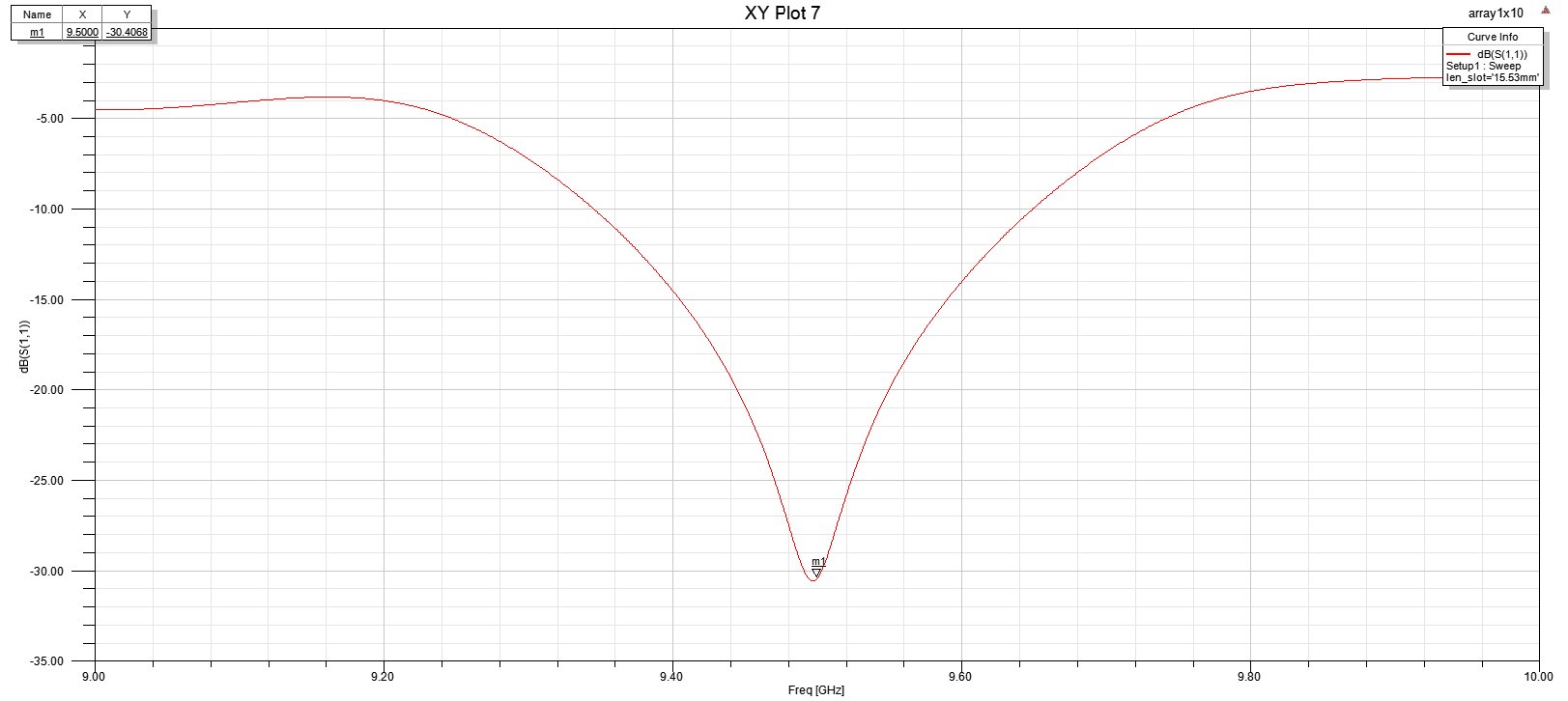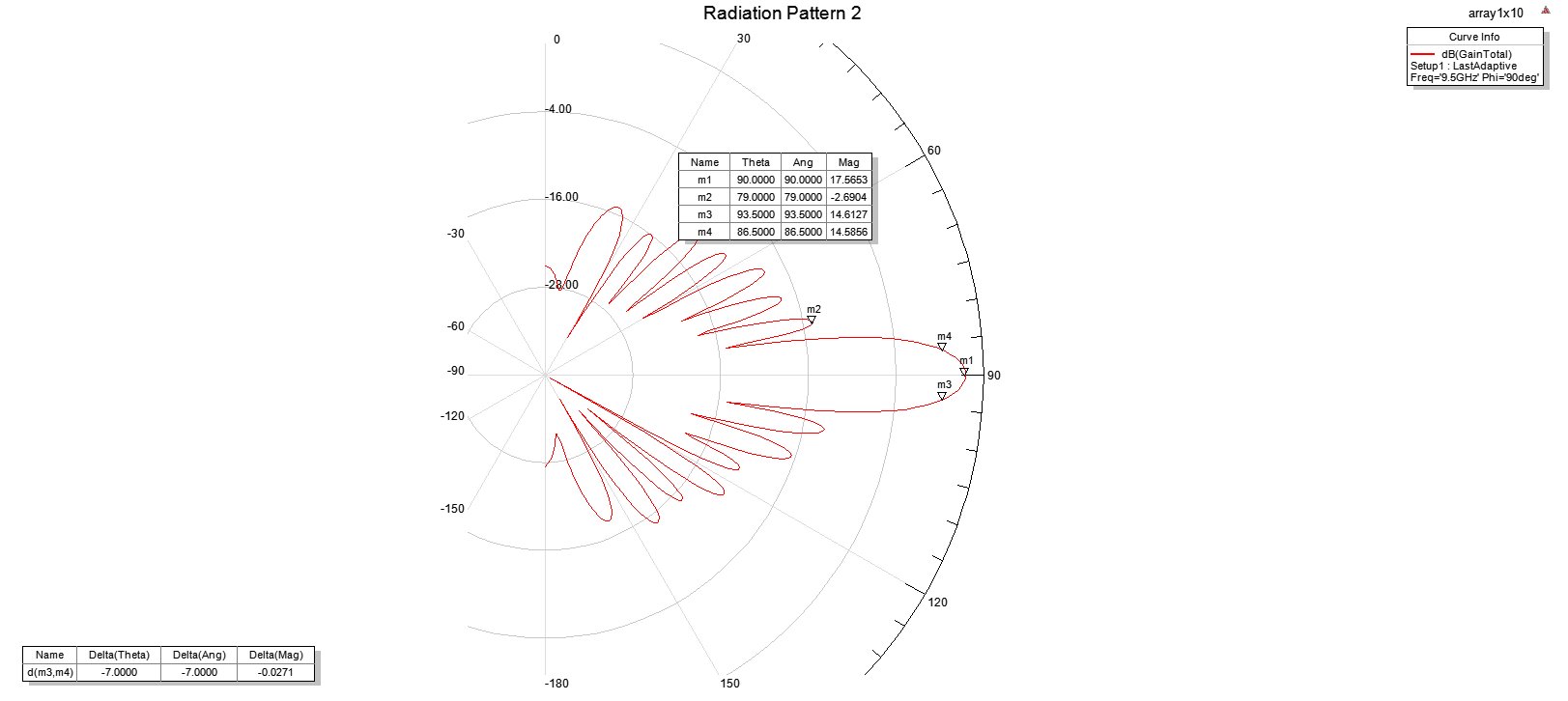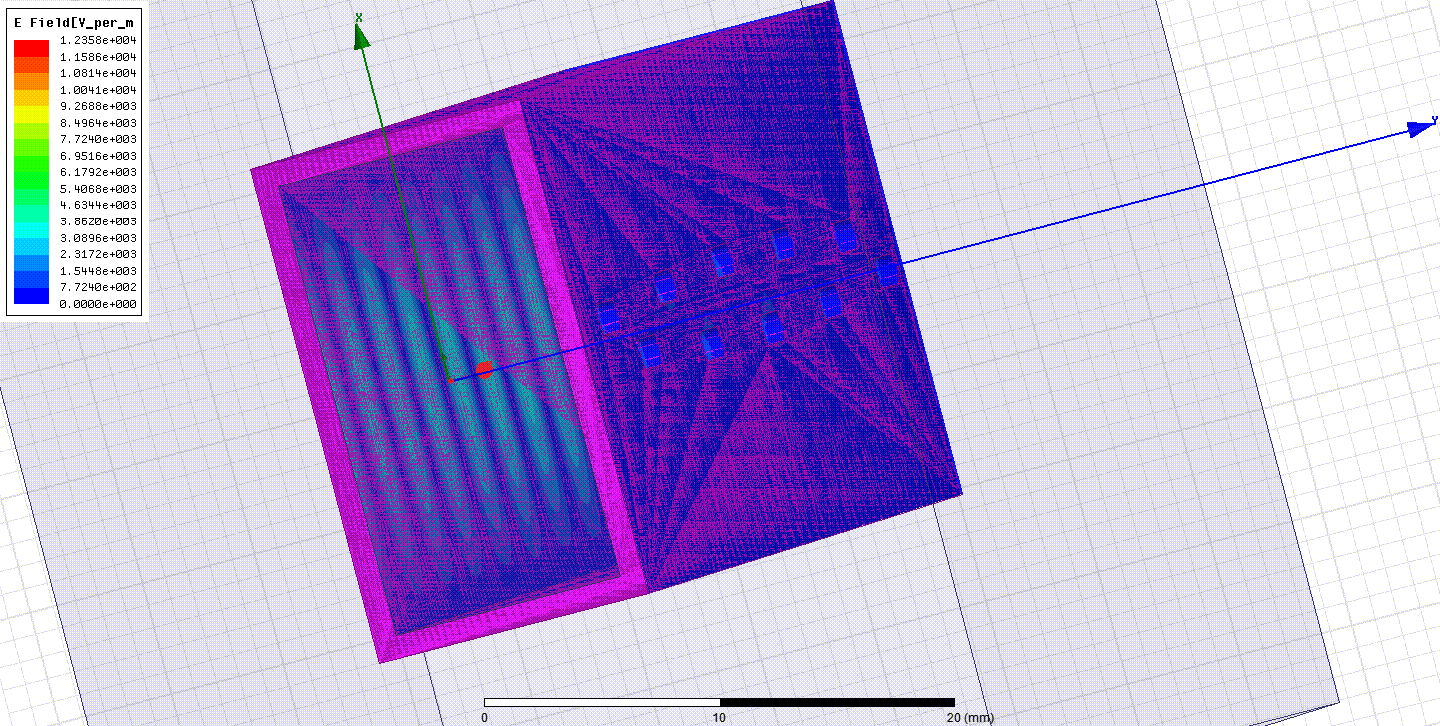
1 %% waveguide slot equvalient circuit 2 % Leon yangli0534@yahoo.com 3 clc; 4 clear all; 5 close all; 6 format long; 7 %% constants 8 N = 12; %slot numbers 9 SLL = -25; % sidelobe level 10 u0 = 4*pi*1e-7;% permeability 11 e0 = 8.854187817e-12;% permittivity in free space 12 c = 1/sqrt(u0*e0);% light velocity in free space 13 %% parameters 14 f0 = 9e9;% frequency 15 l = c/f0*1e3; % lambda in free space 16 % a = 247.65; % width length in mm 17 % b = a/2 ;% height length in mm 18 %WR-284 19 % a = 20; 20 % b = 10; 21 a = 22.86; 22 b = 10.16; 23 %a = 7.112 ; %waveguide width 24 %b = 3.556 ; % waveguide height 25 26 t = 1 ;% thickness in mm 27 w = a*0.0625/0.9 ;% width of the slot in mm l/200 < w < l/10 28 lc = 2*a ; % cutoff lambda 29 lg = l/sqrt(1-(l/lc)^2); % waveguide wavelength 30 31 G_2_slot=1.0/N; 32 New_G1=2.09*(lg/l)*(a/b)*(cos(0.464*pi*l/lg)-cos(0.464*pi))^2; 33 New_Y=G_2_slot/New_G1; 34 Soff=(a/pi)*sqrt(abs(asin(New_Y)));% offset distance 35 36 Slot_wl=0.210324*G_2_slot^4-0.338065*G_2_slot^3+0.12712*G_2_slot^2+0.034433*G_2_slot+0.48253; 37 l_slot=l*Slot_wl;%slot length 38 w_slot=a*0.0625/0.9;%slot width 39 s_slot=lg/2 ; % space betwenn slots 40 41 42 d = linspace(0,a/2,1000)+1e-10; 43 %% stevenson 利用等效传输线理论和格林函数,推导了归一化电导 44 g = 2.09*a*lg/b/l*power(cos(pi/2*l/lg),2)*power(sin(pi/a*d),2); 45 46 %% H.Y.Yee计算方法解决了谐振长度随偏移距离变化的问题 47 beta = 2*pi/lg; % TE10模传播常数 48 Y0 = beta/f0/2/pi/u0;%波导特征导纳 49 %考虑缝隙影响,把缝隙看成一段分支波导 50 51 52 53 % figure(1); 54 % plot(d,g,'k'); 55 % grid on; 56 % grid minor; 57 % title('宽边纵缝的归一化谐振电导与偏置量的变化 '); 58 % xlabel('偏置距离:mm'); 59 % ylabel('归一化电导') 60 % 61 62 63 64 [BeamWidth, D, I]= dolph_chebyshev(N,SLL,0); 65 figure; 66 subplot(221); 67 plot(I,'-o'); 68 69 title('Dolph-Chebyshev 综合'); 70 hold on; 71 [af,bw,gain] = radiation_pattern(I); 72 len = length(af); 73 angle = linspace(-90,90,len); 74 subplot(222); 75 plot(angle,af); 76 ylim([-60 0]); 77 grid on; 78 title('方向图') 79 text(20,5,bw); 80 g = I.^2/sum(I.^2); 81 g = I/sum(I); 82 % 83 %figure; 84 subplot(223) 85 plot(g,'k*'); 86 title('等效电导') 87 hold on; 88 % % g = a/b*2.09*lg/l*power(cos(pi*l/lg/2),2)*power(sin(pi*x/a),2) 89 x = a/pi*asin(sqrt(g/(2.09*a/b*lg/l*power(cos(pi/2*l/lg),2)))); 90 %figure; 91 subplot(224) 92 plot(x,'r*'); 93 title('缝隙偏移') 94 95 %% 96 %Taylor one parameter 97 I= taylor_one_para(N,SLL); 98 figure; 99 subplot(221); 100 plot(I,'-o'); 101 102 title('taylor单变量综合'); 103 hold on; 104 [af,bw,gain] = radiation_pattern(I); 105 len = length(af); 106 angle = linspace(-90,90,len); 107 subplot(222); 108 plot(angle,af); 109 ylim([-60 0]); 110 grid on; 111 title('方向图') 112 text(20,5,bw); 113 g = I.^2/sum(I.^2); 114 g = I/sum(I); 115 % 116 %figure; 117 subplot(223) 118 plot(g,'k*'); 119 title('等效电导') 120 hold on; 121 % % g = a/b*2.09*lg/l*power(cos(pi*l/lg/2),2)*power(sin(pi*x/a),2) 122 x = a/pi*asin(sqrt(g/(2.09*a/b*lg/l*power(cos(pi/2*l/lg),2)))); 123 %figure; 124 subplot(224) 125 plot(x,'r*'); 126 title('缝隙偏移') 127 128 %% 129 %taylor line source 130 I= taylor_line(N,SLL); 131 figure; 132 subplot(221); 133 plot(I,'-o'); 134 135 title('taylor线源综合'); 136 hold on; 137 [af,bw,gain] = radiation_pattern(I); 138 len = length(af); 139 angle = linspace(-90,90,len); 140 subplot(222); 141 plot(angle,af); 142 ylim([-60 0]); 143 grid on; 144 title('方向图') 145 text(20,5,bw); 146 g = I.^2/sum(I.^2); 147 g = I/sum(I); 148 % 149 %figure; 150 subplot(223) 151 plot(g,'k*'); 152 title('等效电导') 153 hold on; 154 % % g = a/b*2.09*lg/l*power(cos(pi*l/lg/2),2)*power(sin(pi*x/a),2) 155 x = a/pi*asin(sqrt(g/(2.09*a/b*lg/l*power(cos(pi/2*l/lg),2)))); 156 %figure; 157 subplot(224) 158 plot(x,'r*'); 159 title('缝隙偏移')
